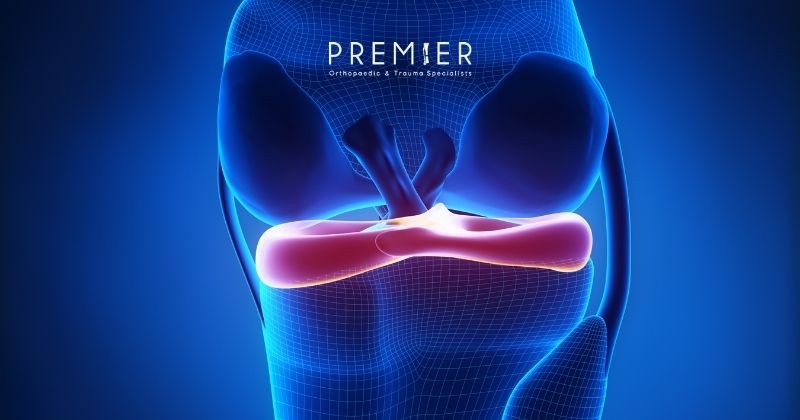The Importance of Core Strength How to Get and Maintain It

Many fitness gurus talk about core strength as the key to getting into better shape. And while for some, this may conjure ideas of a flat stomach with washboard abs, the importance of a strong core is far greater than just the cosmetics. Your core involves the front, sides, and back of the central part of your body. The muscles in these areas work in unison to stabilize your spine, take pressure off the joints, and allow you to perform everything from intense activity to minor chores around the house.
However, when we go to the gym or work out at home, we often only focus on the muscles that everyone looks at first, our arms, legs, or chest.
Stretching Before and After Physical Activity

It sounds like a broken record. Stretch before you exercise. However, stretching and warming up muscles prior to a workout of any kind is an incredibly important part of long-term muscle and even joint health. Much like a car’s engine, the muscles in our body work more efficiently when they are warmed up and primed for strenuous activity. Pushing the muscles hard before they’ve had a chance to warm up often leads to soft tissue injury, instability, and the potential for joint problems.
However, as science and medicine have learned more about the musculature of the body, we have also pivoted on when one should stretch. Stretching a cold muscle can be detrimental. If we launch directly into stretching a muscle that has been immobilized for a while – for example sitting at a desk for the day or just getting out of bed – we can create strain that leads to injury. Therefore, the first part of any exercise routine should be a quick warm-up. This can consist of a brisk walk for about 5 to 10 minutes that gets the muscles working but does not overwork them. From there, these warm muscles can be stretched more efficiently, and strenuous activity can begin.
Compartment Syndrome
Compartment syndrome is a very serious cause of severe disability and even amputation if left untreated. To understand more about compartment syndrome, we need to briefly discuss the musculature in our bodies. Muscles in our legs and arms are surrounded by a layer of tissue known as fascia that you can equate to the casing of a sausage. There is very little flexibility or give in the facia, so when a muscle is injured, particularly due to a crushing blow, significant swelling of the muscle can occur. As the muscle pushed into the fascia, this can lead to a great deal of pressure which, in turn, eventually leads to reduced oxygen levels, tissue necrosis, nerve damage and death of the muscle.
Is There a Psychological Component to Recovery From Hip Replacement?
If you have an older family member, a hip fracture (broken hip) is one of the most dreaded injuries. Not only is there the physical concern of a broken bone and subsequent surgery, but also the well-studied and documented increased risk of death that goes along with it. However, hip replacement surgery is not an overly risky procedure in and of itself for most and it certainly isn’t a death sentence.

With that said, hip replacement is still major surgery that comes with all its inherent risks along with specific risks of the procedure itself. These, of course, will be discussed during consultation prior to surgery. As we age, our general health may also begin to deteriorate and any surgery that requires hospitalization and immobilization becomes that much riskier.
Choosing the Right Orthopedic Surgeon – Questions to Ask

While you may not have the ability to choose your orthopedic surgeon after a traumatic event like a car crash or fall, most of us will experience a few injuries during our lives that require consulting with an orthopedic surgeon sooner or later. In these cases, choosing the right surgeon for the job is important for the outcome after surgery. For some, the choice may be limited by insurance coverage and geographic location, but when we do have a choice, here are five important considerations to find the right specialist:
Smartphone Tendonitis. Real or Myth?

Smartphone tendonitis is a real condition, plain and simple. However, it is a relatively new condition that coincides with, you guessed it, smartphones. Prior to the advent of smartphones we really didn’t have many devices that would place such concentrated strain on one or two digits. Even in those that use computers, and typewriters back in the day, we haven’t seen quite as much damage to the body.
Calcium and Healthy, Strong Bones
Calcium is the building block for bone structure and consequently a very important mineral, especially for those in middle or older age. And while this blog focuses on the importance of calcium for the bones, it is also critical to proper muscle and nerve function as well. Our bones shed and rebuild tissue through our entire lives. This regenerative process keeps them healthy and strong, while reducing the risk of fracture. However, as we get older, this regeneration process shifts – more bone is lost and less bone is regenerated, causing a net loss in bone density.

Age is the primary cause of bone density loss, however being female and consuming a diet low in calcium are also risk factors. Other factors may also include certain metabolic diseases, Vitamin D deficiency and rapid weight loss, for example after dieting or weight loss surgery.
Do Fractured Bones Cause a Life of Disability and Pain?

It is easy to think of the bones in the body as monolithic, unchanging things, but to do so would not give these amazing structures the credit they deserve. In truth, bones are very much active – breaking down and regenerating tissue continuously over our lifetimes. Bones need nutrients like calcium and proper blood flow to stay strong, healthy and, frankly, alive. When we break a bone as a child, most cases heal well, with or sometimes without surgical intervention. Depending on the type and severity of break, the bone remains relatively normal for the rest of the patient’s life.
But we all know that as we get older, it is it takes longer to recover from a fracture and the outcomes are somewhat less certain. This is especially true for elderly patients that fracture a hip, many of which never recover their former abilities. But what causes this? And is disability a foregone conclusion?
The Importance of Physical Therapy After an Orthopedic Injury
A common theme in orthopedic recovery is physical therapy. Physical therapy involves manipulation of the bones and muscles of the injured area to improve range of motion, reduce swelling and promote healing. After recovery from just about any moderate to severe injury, patients would likely undergo a course of physical therapy.

Does a Meniscal Transplant Make Sense for You?
Knee injuries to the meniscus are very common with over 500,000 peoplereeiving treatment every year. It’s likely that many more are unaware of their injury or have compensated to live with it. There are many ways to treat a meniscus injury, whether that be surgery or just physical therapy and time. One of those treatment options is a meniscal transplant. In this article, we will explain what exactly that is and if it is a good option for you.



 ES
ES